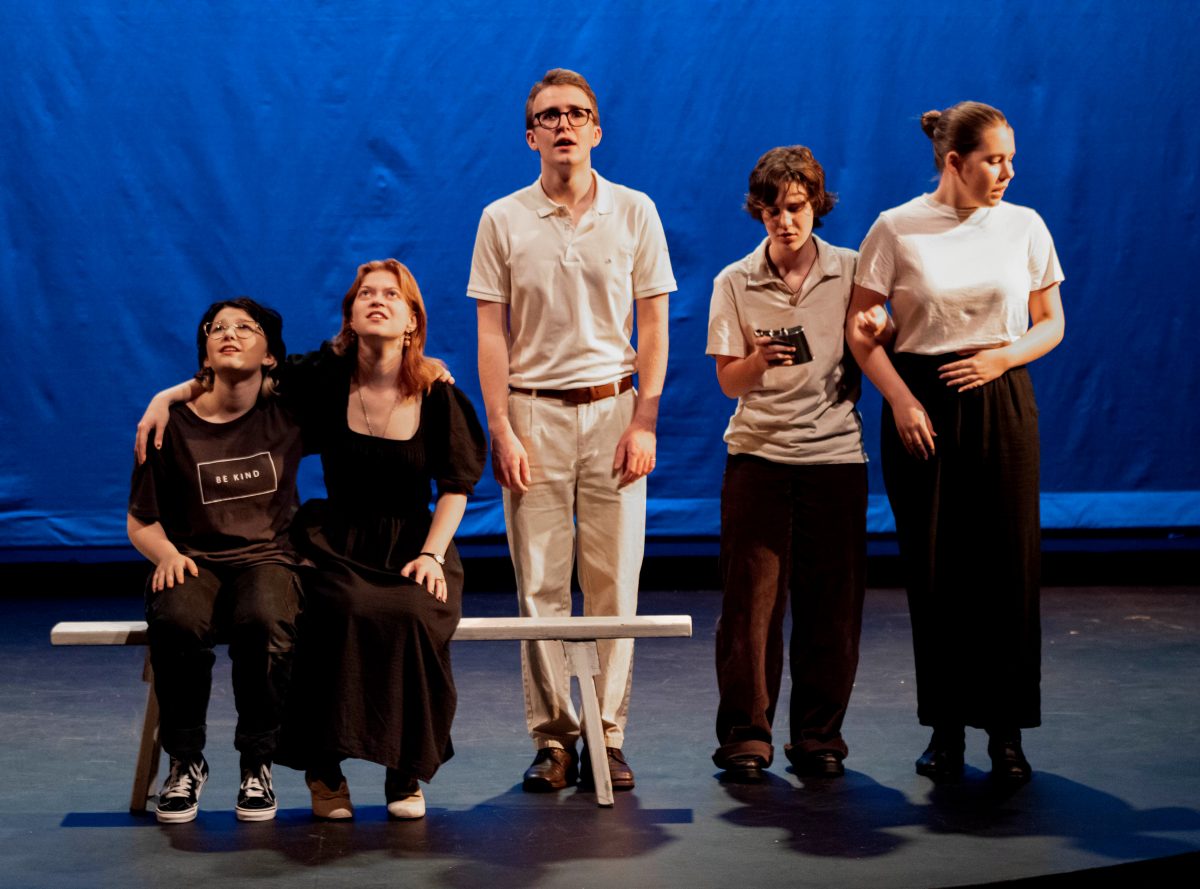Two weeks ago, a group of about twenty students were invited to participate in a workshop lead by University of Pennsylvania’s Dr. Howard Stevenson to talk about interracial relationships at Latin. Organized by the Diversity Council, the workshop attracted students from all grades. After determining that we were all in a safe and supporting space, Dr. Stevenson began by showing us a cartoon. Drawn on this cartoon was a comically unhappy elephant being examined by blindfolded scientists. Speech bubbles surrounded the drawing: a scientist who was feeling the tail of the elephant exclaimed, “It’s a snake!” while another, feeling the torso, was sure that he was dealing with a wall. We were then asked to voice our opinions on what we thought was going on, what was meant by this picture, etc. We agreed that due to the scientist’s reputations and status, he knew exactly what he was touching, despite being blindfolded and dealing with an elephant. People are guilty of such misconceptions too – we make all kinds of assumptions and judgments based on what is on the surface, blindfolded by our own biases and experiences. It’s inevitable that we make quick conclusions based on what someone looks like – wondering if they are “friend or foe” is simply an evolutionary tactic we have adopted from our ancestors. What is not healthy is not addressing those conclusions, especially if they are negative, and never questioning our own reasoning behind why we made them. The scientist in the cartoon who thought he was dealing with a snake most likely felt in danger. Naturally, his body responds by becoming more alert, tightening its muscles, and sweating. Dr. Stevenson said this reaction, especially dealing with fears or safety, is reasonable and human. On an “anxiety/stress scale”, he rated the intensity of the moment a 7 out of 10. But what really got our attention was when he said that there are people in the world who feel the same anxiety as the scientist did dealing with the “snake” when dealing with people of a different race. One note: race is a social construct and there is no biological difference (if you consider the amount of melanin, in the scheme of evolution, it is so minor that it is completely disregarded) between whites, blacks, greens, and purples. What is real is racism. The workshop was dynamic. Students would share their experiences based on what we were discussing. Several students were interrupted by their own tears when sharing, sending a wave of intense empathy and emotion throughout the room. A few of us, myself included, got teary in response to the stories being shared. A lot of us were shocked that events of blatant racism occurred at Latin, and we learned that you can’t make judgments on others by the limited experiences you have had. But that does not prevent you from trying your best to understand where they stand as an emotional human being. The rawness and intensity of these moments moved us as a group and reminded us of the impact of racism. Dr. Stevenson asked these students to rate their experiences on the stress scale, and they all answered 8 out of 10. I was moved by the workshop to say the least. I think it was a successful discussion that taught us all a little bit about ourselves, each other, and racism. Of course, Dr. Stevenson didn’t give us the answer to the million-dollar question: How do we stop racism? But he, and students, threw around ideas on how we can cope and help others deal with these issues (my favorite was reminding yourself and your adversary that you both are just as valid as every other human on this planet). Needless to say, racism isn’t the only controversy we deal with at school. Judging students based on their social class as well as political ideologies seem to be the other two big ones. We have to start with our small community to affect big change in the world. We have to start appreciating diversity in ethnicities, identities, and philosophies. And we have to stop being so quick with our judgments because we are unfamiliar or scared. ]]>





































amoreno • Oct 19, 2015 at 9:07 pm
❤️
amiramon • Oct 19, 2015 at 5:45 pm
gg gurl. GREATLY SAID